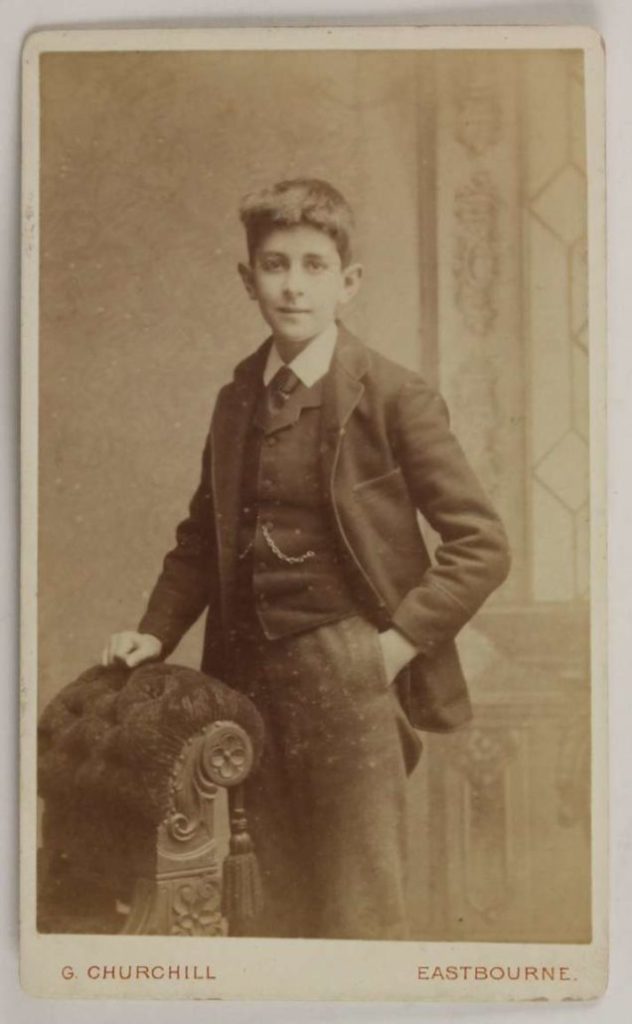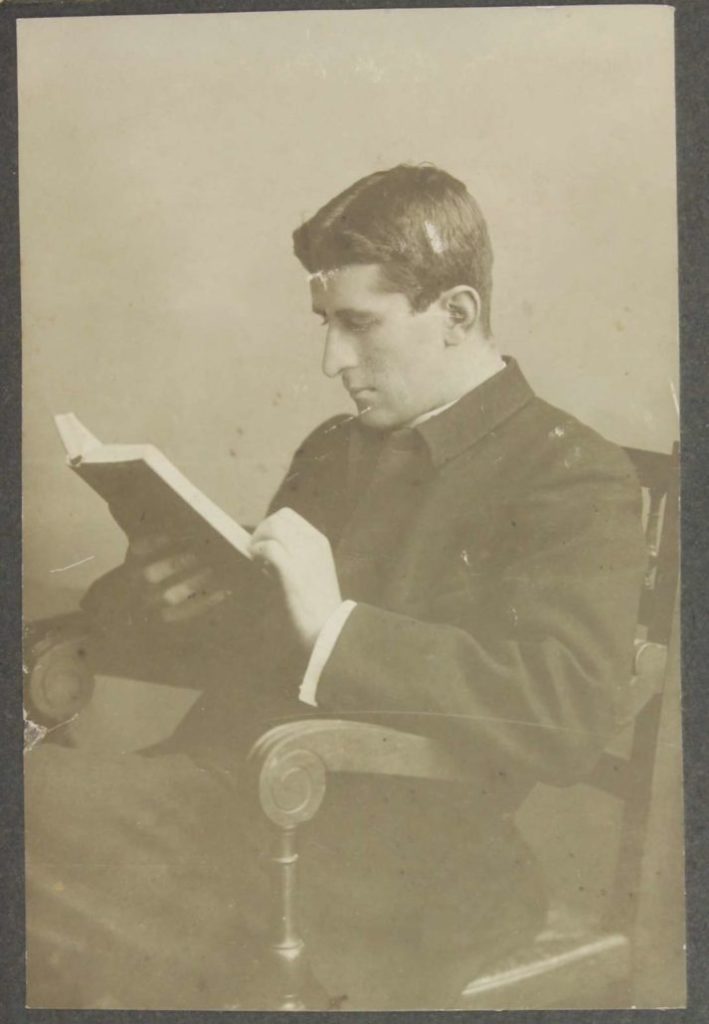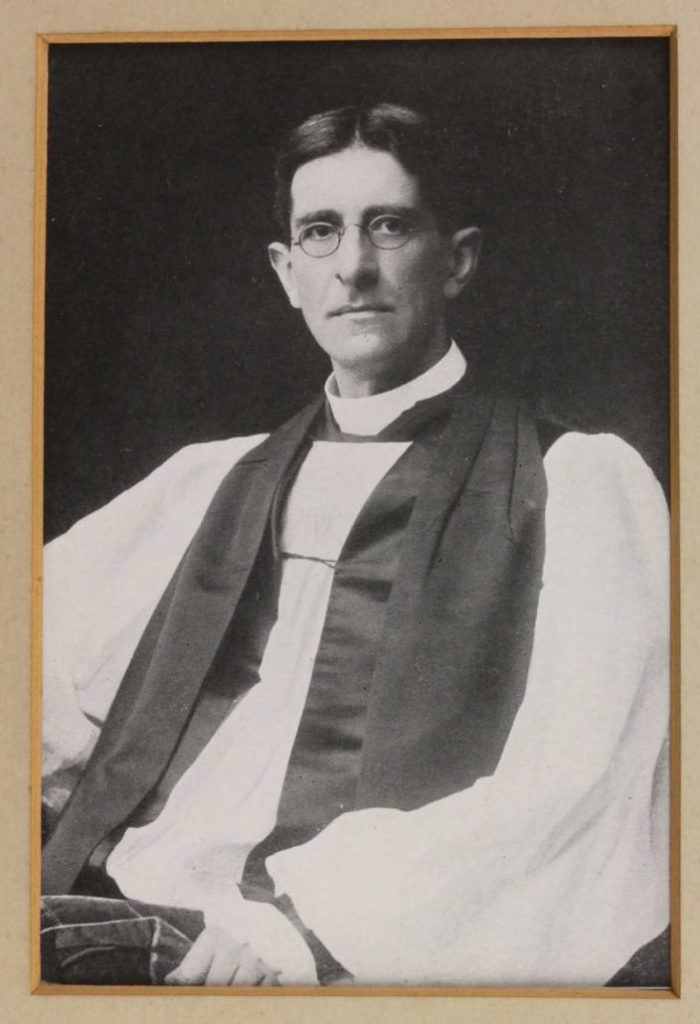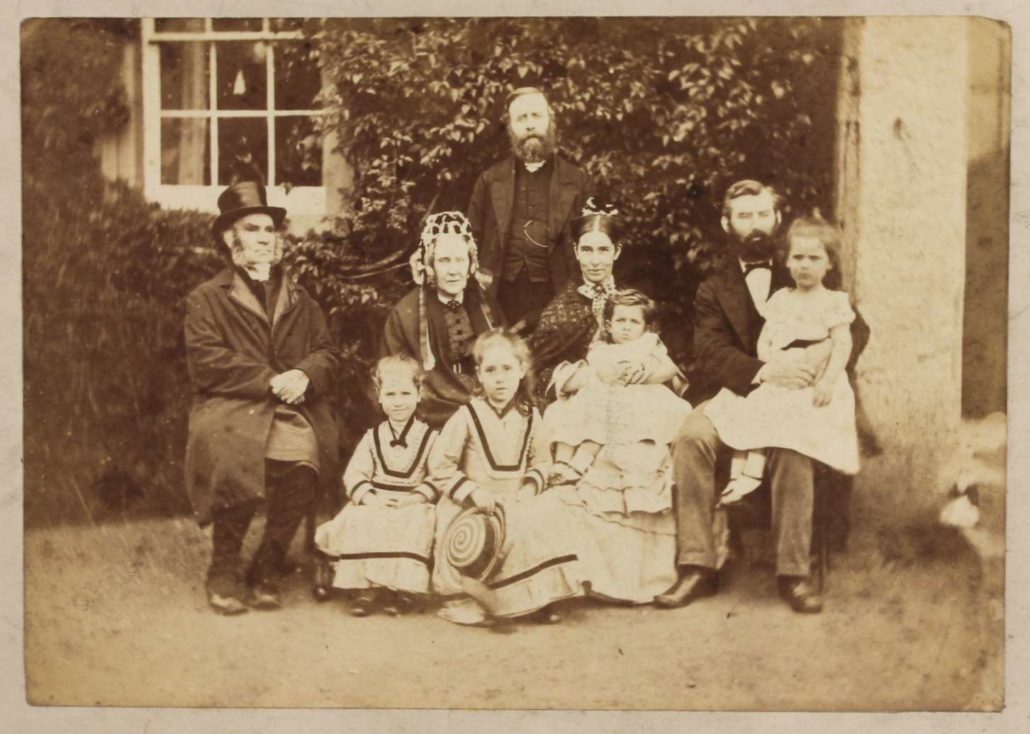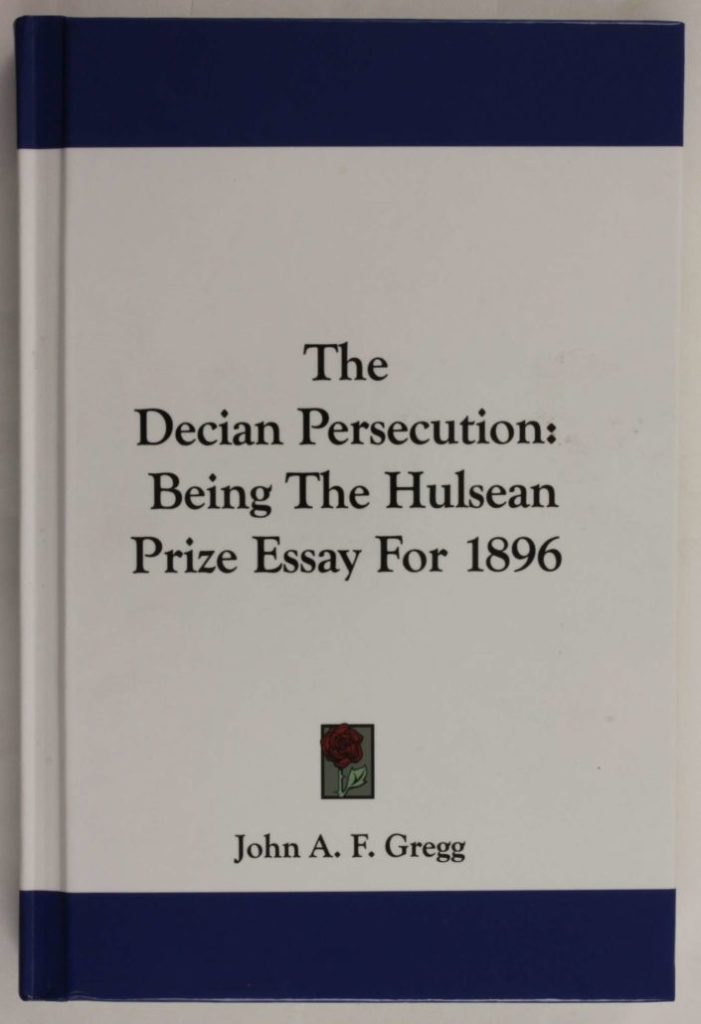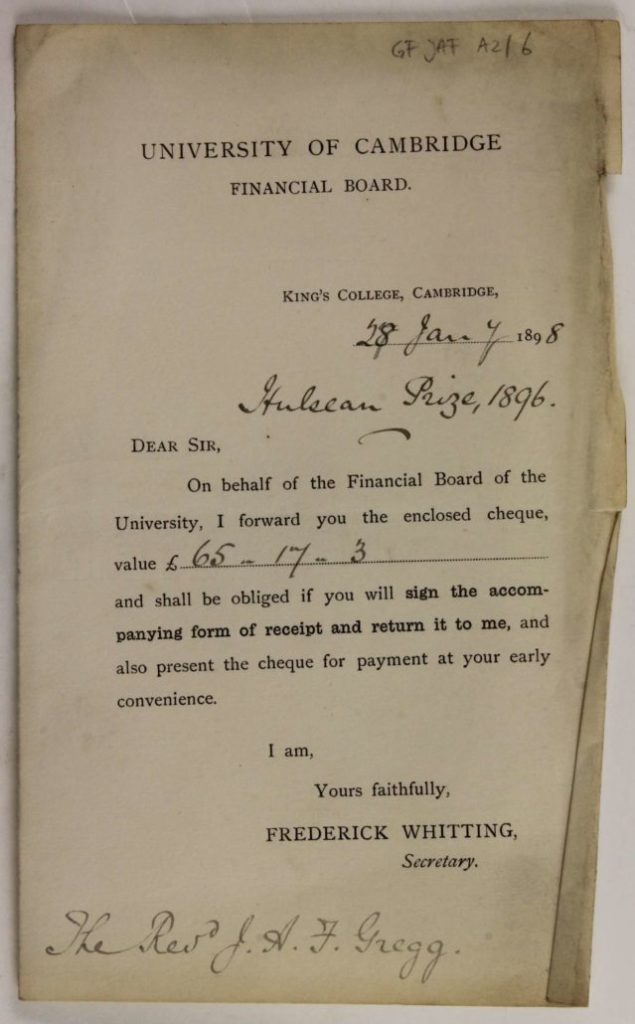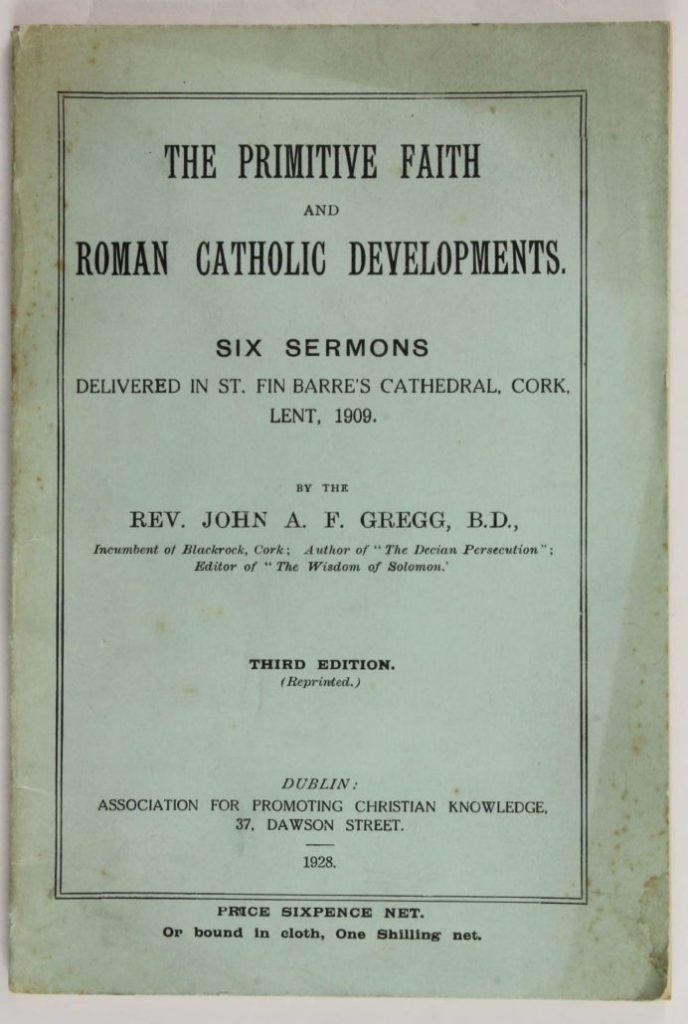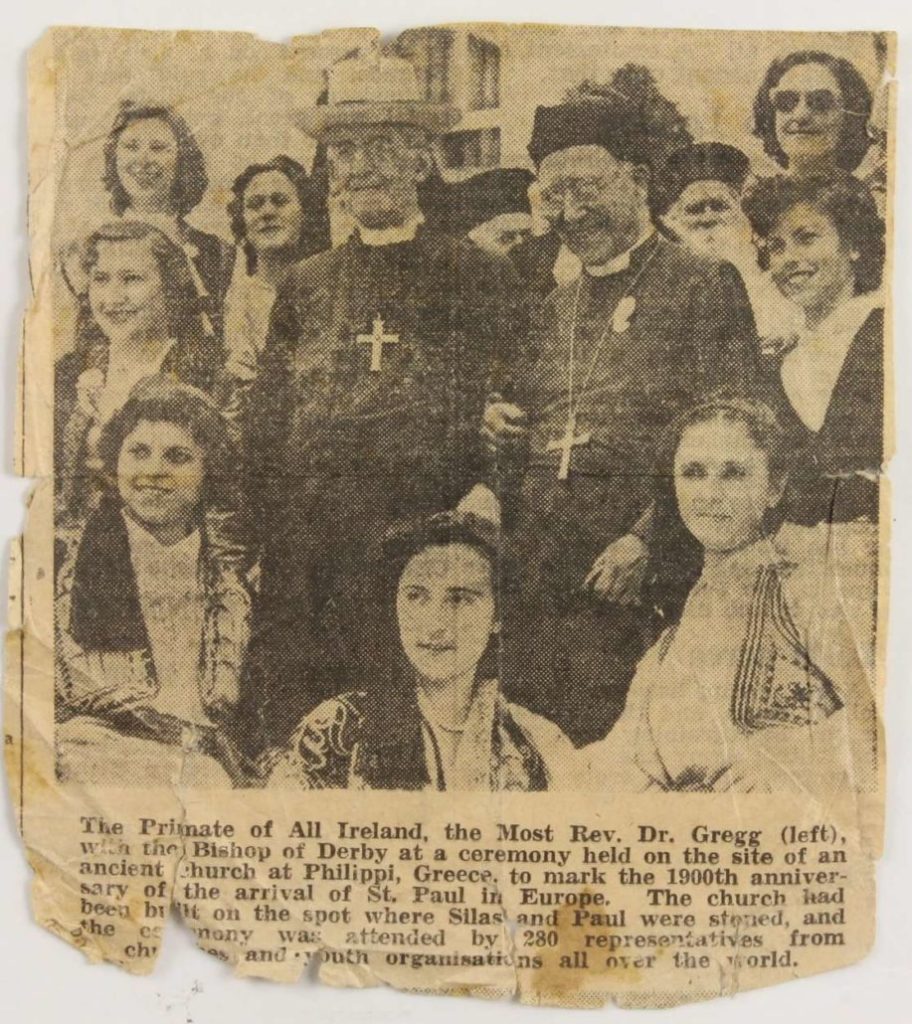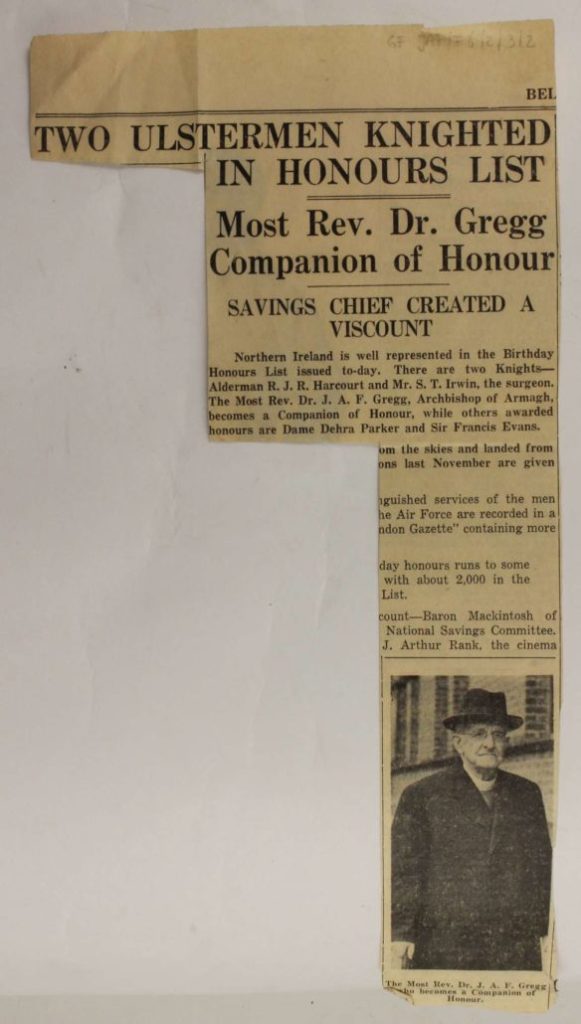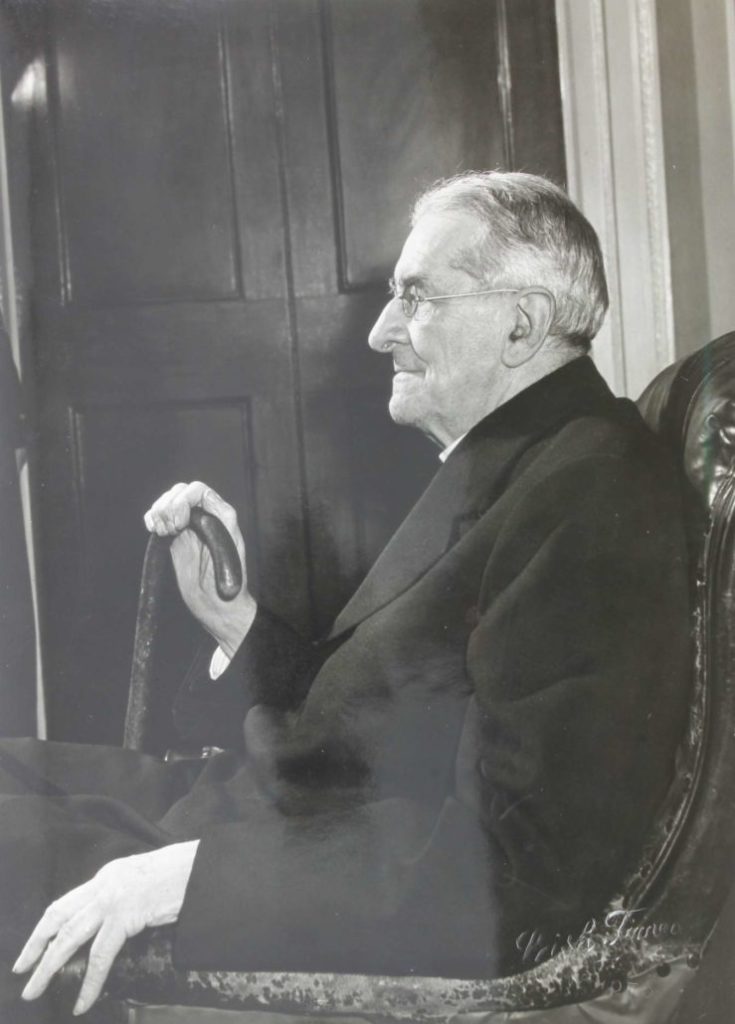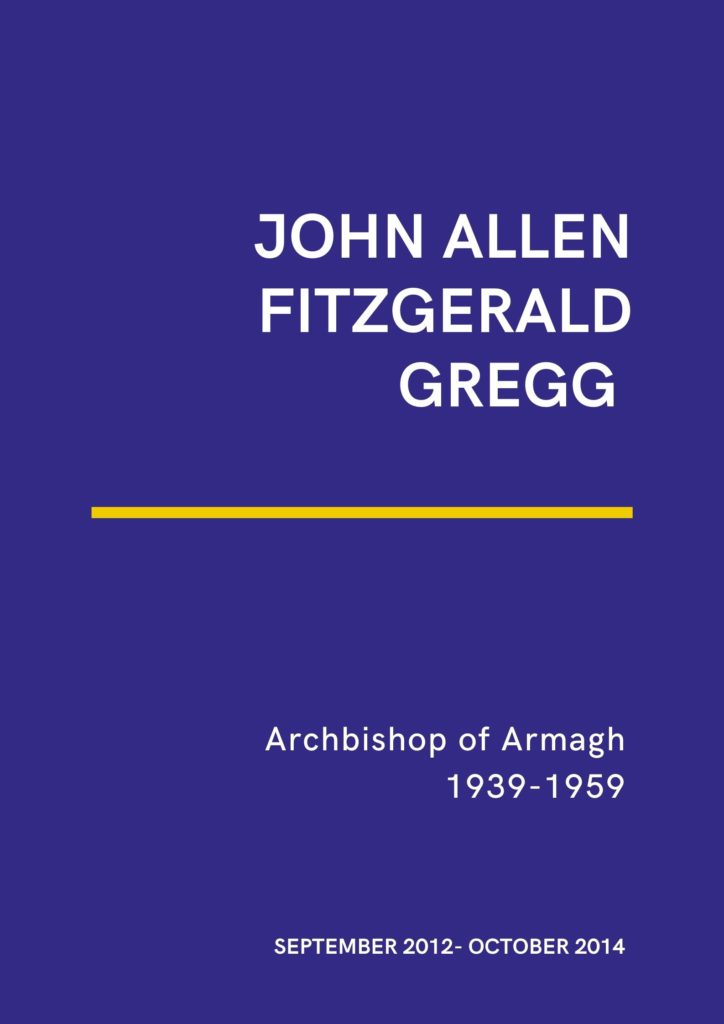
John Allen Fitzgerald Gregg was Archbishop of Armagh from 1939 to 1959. This exhibition was mounted to celebrate his life and ministry.
John Allen Fitzgerald Gregg was born in 1873 in Gloucester, England, into a family of Anglican clergy. He studied Classics at Christ’s College, Cambridge (1891-1895), and Theology at Ridley Hall.
First ordained curate in Ballymena in 1896, he subsequently served as a curate in Cork and as rector of Blackrock. He was made Bishop of Ossory in 1915 and Archbishop of Dublin in 1920. In 1939 he was elected Archbishop of Armagh and Primate of All Ireland.
He was learned, outspoken, fair, and was valued both as a leader, and as an authority within Anglicanism. This showed not only in his dealings with fellow clergy and in his writings, but also in his addresses to parish communities.
ANCESTORS
J.A.F. Gregg was not the first Anglican clergyman in his family. John Gregg, his grandfather, served as Bishop of Cork, Cloyne and Ross 1862-1878. His father served as curate in various parishes, and as vicar in Deptford, South London from 1875 until his death in 1882.
His uncle, Robert Samuel Gregg, served as Bishop of Cork, Cloyne and Ross 1878-1893, and as Archbishop of Armagh 1893-1895.
Gregg family portrait (± 1874) Standing: John Robert Gregg (father) Middle row, from left: John Gregg (grandfather), Elizabeth Gregg (grandmother), Sarah Gregg( mother), unidentified male, possibly his uncle Robert Samuel Gregg Bottom row, from left: Hilda (sister), Katherine(sister), John Allen Fitzgerald Gregg as a toddler, Mary (sister)
HULSEAN PRIZE WINNER
In 1896, aged 23, Gregg received the annual Hulsean Prize, given for essays on the history of the Christian Religion. The Decian Persecution examines the edict of the Roman Emperor Decius, issued in AD 249, and its consequences for the Christian Church.
The edict required all citizens to offer a sacrifice to the emperor, for which they received a certificate. This was regarded as the first systematic persecution of the Christian Church.
Gregg received prize money of £65.17.3, today worth £3,850.
2007 Reprint of The Decian Persecution; being the Hulsean Prize Essay for 1896 by John A.F. Gregg, B.A. Late Scholar of Christ’s College, Cambridge one of the Legacy Reprint Series by Kessinger Publishing. Letter to J.A.F Gregg from the University of Cambridge Financial Board, accompanying the cheque for the Hulsean Prize 1896.
ANTIQUARIAN
Gregg had a great interest in antiquarian and scholarly books, and regularly received a catalogue from Heffers of Cambridge. His clerical stipend did not leave much room for purchases.
His expert knowledge enabled him to spot the occasional gem, such as a 1546 King’s Primer, The Primer, Set Furth By the kinges maiestie & his Clergie, to be taught lerned, and red: & none other to be used thorowout all his Dominions, a devotional manual related to the services of the Church.
CONTROVERSIALIST
Gregg had great admiration for the Roman Catholic Church, for its devotion, discipline and unity. Being a rationalist however, he found some of its doctrines incomprehensible. His six sermons on the Primitive Faith, written at the request of the Dean of Cork, were intended to strengthen his listeners in the faith ‘as it was once delivered to the Saints’.
The sermons concern:
- papal supremacy
- papal infallibility
- the cult of the Blessed Virgin Mary
- indulgences
- the Invocation of Saints
- the position of the Church of Ireland itself
The Primitive Faith and Roman Catholic Developments: Six Sermons Delivered in St. Fin Barre's Cathedral, Cork, Lent, 1909, by the Rev. John A.F. Gregg, B.D. [...]
ECUMENIST
Gregg was an early advocate of Christian unity. He had an interest in other Christian churches, especially the Lusitanian Church in Portugal, and the Greek Orthodox Church. He forged close connections with both, whose leaders in turn had great admiration for him.
Gregg visited Philippi, Greece in June 1951 to take part in the celebration of the 1900th anniversary of the arrival of Christianity in Europe. On that occasion he received a gift of a Byzantine Episcopal ring, which he greatly treasured.
Newspaper cutting featuring Gregg and Alfred Rawlinson, Bishop of Derby, at the celebration in Philippi, Greece. The cutting was found amongst Gregg’s own papers.
COMPANION OF HONOUR
In 1957 Gregg was granted a Companion of Honour by Queen Elizabeth, in recognition of his important and continuous contributions to religious matters.
He was taken completely by surprise, and delighted.
Two Ulstermen Knighted in Honours List. Most Rev. Dr. Gregg Companion of Honour. ... Newspaper cutting 13 June 1957
Archbishop of Armagh
Gregg was elected Archbishop of Armagh in 1939, which he remained until his retirement in 1959.

